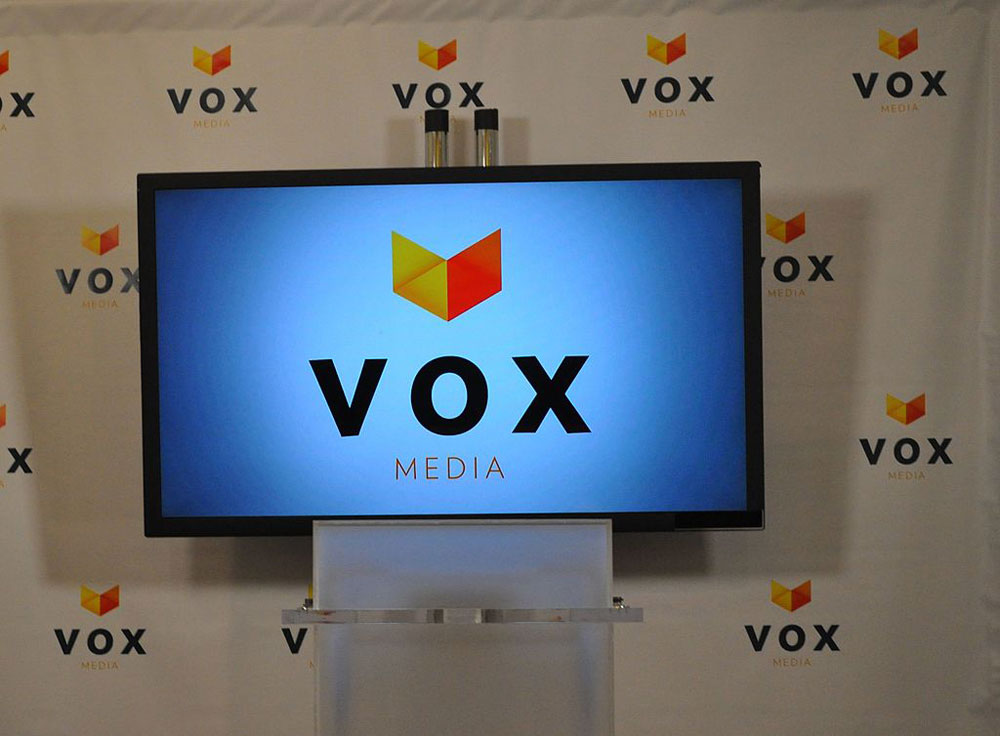
They did it! Vox Media employees have successfully negotiated a union contract with their employers and the Writers Guild of America East (WGAE). Now all that remains is for the contract to be ratified.
On Friday, NPQ reported that Vox Media employees had walked out of the office on Thursday, their last day of negotiations after 14 months trying to reach a contract. It seemed that Vox Media might have been trying to keep the struggle out of the public eye, for they kept releasing articles on social media and didn’t report on the strike themselves. But other newsrooms and public figures supported the @vox_union Twitter account that communicated the employees’ struggles to the public.
On Friday night, after 29 straight hours of bargaining (Vox alum Travis Hughes tweeted, “Who do I venmo the beer money to?”), the union account announced, “We have GREAT news!”
After 29 straight hours of final negotiations, and well over a year of organizing and collective action, we are thrilled to announce we have reached a tentative agreement with Vox Media for our first-ever collective bargaining agreement with the Writers Guild of America, East. Our unit still needs to ratify our contract, but we are proud of what we have won in this agreement and can’t wait to share the details.
WGAE executive director Lowell Peterson called the deal “an industry-standard collective bargaining agreement, which includes important gains in every area people care about.”
In a statement on the WGAE website, the staff wrote, “An organized workforce provides support for each employee, and any one of us in need should feel empowered by the rest of us. Unions have made traditional newsrooms across America stronger and better for decades, and we’re excited to join the movement in digital media to bring these protections to this industry.”
Sign up for our free newsletters
Subscribe to NPQ's newsletters to have our top stories delivered directly to your inbox.
By signing up, you agree to our privacy policy and terms of use, and to receive messages from NPQ and our partners.
Jim Bankoff, the CEO of Vox Media, wrote an email thanking his colleagues on the bargaining committees and saying he was “thrilled.”
Vox Media joins the growing list of newsrooms whose employees, in the midst of layoffs, public attacks, and other threats to professional journalism, have banded together in unions. Paul Farhi wrote in the Washington Post in 2018, when Slate’s unionized employees went on strike, “One by one, journalists employed by the once-scrappy start-ups and venture-capital darlings of the Internet have banded together to negotiate collectively.” Vox joins Slate, the Intercept, the Onion, Salon, Vice, the New Yorker, HuffPost, and many others.
This means two things. One, digital reporting is building an infrastructure and a network of professional, empowered, informed, connected journalists. Of course, it’s not just the digital publications organizing; Nieman Reports wrote recently that legacy newsrooms are unionizing as well, “largely because of accumulated anger about downsizing, years without raises, and ever-worsening health benefits.” As the industry shifts, journalists are demanding that the financial stress of changing models be borne by a vehicle other than the hardworking reporters and editors whose work is essential to any sustainable journalism venture.
Nastaran Mohit, chief organizer for the NewsGuild’s New York local, wrote, “This generation is tired of hearing that this industry requires martyrdom.” Gee, where have we heard that before?
The other outcome of increasingly unionized newsrooms is that unions like WGAE, NewsGuild, and others are gaining hundreds or thousands of members and becoming powerful organizations themselves. Steven Greenhouse at the Columbia Journalism Review writes, “Many of today’s digital journalists, like their predecessors in the 1930s, are keen to have a union to help ensure they can do their work insulated from pressures by business interests or advertisers. Nowadays, many also want to ensure that their websites have a clear line between journalistic content and so-called sponsored or native content.”
Social media and the large followings of individual journalists have contributed to successful union drives, especially since it seems usual that newsrooms don’t write about these efforts. Twitter campaigns create a vehicle for public pressure which seems to have some influence. But they’re also an argument for the rights of employees to have a seat at the bargaining table: bringing one’s 25,000 or 50,000 followers to a platform is a significant value-add on top of the day-to-day work newsroom employees do.
Many congratulations to Vox Media employees and we look forward to the results of your reenergized newsroom.—Erin Rubin













